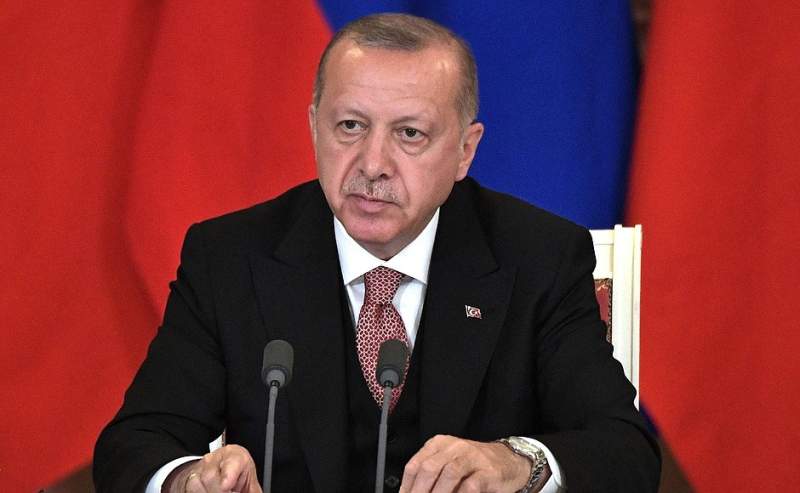Turkey Steps Up Ukraine Support as Germany Remains Distant
Source: https://washingtonnewspost.com/news/usa/turkey-steps-up-ukraine-support-as-germany-remains-distant/

Turkey’s support of Ukraine in the face of a possible invasion by Russia, despite recent troubles with Europe, highlights Germany’s hesitancy as tensions remain high.
“On the particular issue of Russia’s possible invasion of Ukraine, I think Turkey’s playing a helpful role,” James Anderson, undersecretary of defense for policy under former President Trump, told Fox News Digital. “They have stated quite clearly that they oppose any further Russian invasion of Ukraine. They have clearly stated their opposition to Russia’s intervention in Georgia a few years ago. Those statements are welcome.”
Turkish President Recep Tayyip Erdogan in January approved the sale of drones to Ukraine and last week clearly stated Turkey’s willingness to “stand by … and help” Ukraine. Erdogan also stressed that “Turkey continues to support the sovereignty and territorial integrity of Ukraine, including Crimea,” during a meeting last week with Ukrainian President Volodymyr Zelenskyy.
NATO member states have not deployed any troops to Ukraine, but they have provided assistance in the form of lethal aid, including missiles, drones and munitions. Germany, perhaps the most vital European member of NATO with its largest economy, shocked Kyiv when it provided just 5,000 helmets for Ukrainian troops, falling well short of the 100,000 helmets and protective vests requested.
‘Maturing’ relationship
But Turkey, the second-largest nation in NATO, has stepped up to support Ukraine as part of a “maturing and growing relationship,” Anderson said.
Turkey in September 2021 also commenced building the first of four Ada-Class corvette warships it will provide to Ukraine, the first of which may arrive as early as 2023, Naval News reported.
Turkey’s strong support for Ukraine may surprise the West after recent strain on relations. Then-President Obama’s silence following a failed coup attempt in 2016 led Erdogan to accuse the U.S. of supporting the would-be rebels, and President Biden exchanged critical barbs with Erdogan shortly after taking office, criticizing Turkey’s withdrawal from an international agreement to protect women’s rights.
“Turkey has been trending in the wrong direction on certain human rights issues,” Anderson explained, also citing recent trouble with Cyprus and Greece. “To include, you know, locking up journalists and members of the press, cracking down on civil society. That’s also a challenge.”
Turkey’s ongoing saga over activist and philanthropist Osman Kavala hit a boiling point over the past two months. The Council of Europe in December signaled its intent to sanction Turkey over Kavala’s continued imprisonment after the European Court of Human Rights ordered Turkey to refer Kavala’s case to the European body. Erdogan responded by saying Turkey will not respect the Council of Europe, according to Reuters.
Troubles aside
But Turkey has put its troubles aside in order to help Ukraine, even if that help is more or less self-interested, Turkish scholar Kemal Kirisci told Fox News Digital.
“I’m coming to recognize, more and more, how correct are a lot of friends and colleagues in the Turkish Foreign Ministry,” Kirisci, a non-resident scholar with the Brookings Institution, said. “For all the abuse coming out of Erdogan’s mouth about the U.S., Europe and NATO as well, that Turkey has diligently abided by its obligations to NATO, including the running of the VJTF.”
Turkey has run the Very High Readiness Joint Task Force (VJTF) in Romania since the start of 2021 as an additional commitment to NATO. It also had maintained a defense expenditure of roughly 1.8% of GDP, short of the NATO-dictated 2% but well above the spending of Canada, Italy and, most notably, Germany, which only spends around 1.5% of GDP as a small increase from its roughly 1.2% for most of the past decade.
Germany has remained relatively quiet during the crisis, at one point reportedly blocking Estonia from supplying old German howitzers to Kyiv. Ukraine criticized Germany, saying that its stance on arms supplies does “not correspond to the level of our relations and the current security situation.”
However, in a meeting with President Biden this week, German Chancellor Olaf Scholz agreed to cut off Nord Stream 2, a vital pipeline delivering oil from Russia to Germany, if Russia invades Ukraine.
Chancellor Scholz insisted his country will not supply Ukraine with “lethal” aid as officials do not wish to “fuel the situation” and would rather find a diplomatic solution. Germany will provide a complete field hospital and necessary training, but NATO’s most critical European member has otherwise fallen short in comparison to other NATO allies who appear to fully recognize the imminent danger Russia poses to Ukraine’s stability and independence.
Norbert Röttgen, a senior conservative lawmaker in Germany, told The New York Times that “Germany is critical to achieve unity.”
“Putin’s goal is to split the Europeans, and then split Europe and the U.S.,” Röttgen said. “If the impression prevails that Germany is not fully committed to a strong NATO response, he will have succeeded in paralyzing Europe and dividing the alliance.”




